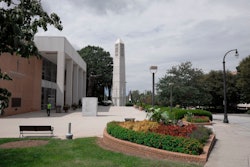SAN JUAN, P.R—Hundreds of scholars converged on this island on Thursday to strategize about current issues and trends impacting the future of higher education.
“Spanning & Unsettling the Borders of Higher Education,” the theme of this year’s Association for the Study of Higher Education (ASHE) explored a range of topics from access and diversity in international education, to the racialization of minoritized college students.
A panel titled, “Pell Restoration for Incarcerated Individuals: Unsettling the Borders of Higher Education in Prison,” organized by The Education Trust—a national nonprofit that works to close opportunity gaps that disproportionately affect students of color and students from low-income families— centered the voices of formerly incarcerated individuals who overcame odds and attained their bachelor’s or master’s degree. These participants in the Justice Fellows Policy Program have created programs and organizations for the formerly incarcerated community and engaged in state legislative advocacy efforts.
Since the 1994 Crime Bill, formerly and currently incarcerated people had been banned from Pell Grant funding. In December, Congress lifted the Pell Grant ban with bipartisan support, expanding Pell only to incarcerated students who attend prison education programs that federal or state correctional authorities approve as operating in “the best interest of students.” This summer, the U.S. Department of Education announced that it would expand the Second Chance Pell experiment for the 2022-2023 award year, noting that the Second Chance Pell experiment provided education opportunities for thousands of justice-involved individuals who have previously been unable to access federal need-based financial aid.
Department of Education officials argued that the expansion of such programs will allow up to 200 colleges and universities to offer their prison education programs with support from the Pell Grant program, up from the 131 currently participating. To date, students have earned over 7,000 credentials, building new skills and improving their odds of success.




















